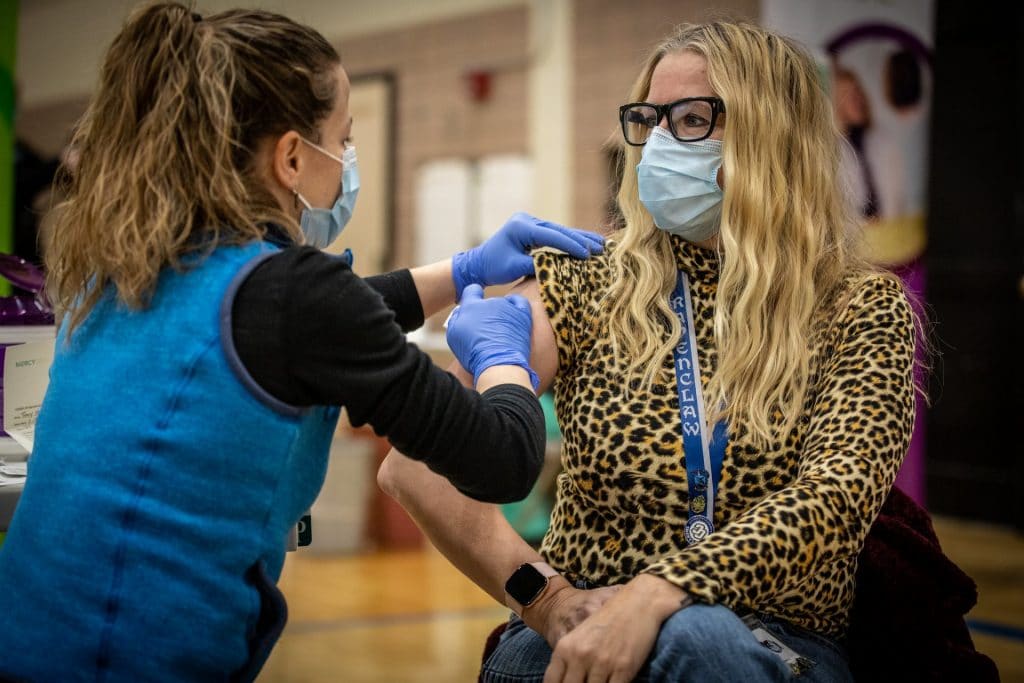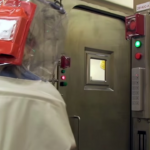Do we need a new vaccine for omicron? Fauci says not yet, other experts disagree
By Matt Field | December 21, 2021

Anthony Fauci, the White House’s chief medical advisor, set a lot of minds at ease recently when he said he saw no need to update COVID-19 vaccines for the highly transmissible omicron variant. Despite Fauci’s reassurance, however, some virus experts say the vaccines still need to be reformulated.
While Pfizer/BioNTech, Moderna, and other companies have developed new vaccine formulations for other worrisome variants of the SARS-CoV-2 virus, including beta, they were never rolled out to the public; the original formulations have provided enough protection. But scientists have seen that some of the same mutations—or mutations at the same sites in the virus’s genetic code—can crop up across different variants. Researchers have some idea about what concerning mutations future variants may have.
“We do now know what sites are key for escaping neutralizing antibodies,” Jeremy Kamil, an associate professor of microbiology and immunology at LSU Health Shreveport said, referring to the molecules the immune system produces after infection or vaccination. “We know which sites keep changing in variants of concern, and what they change to, and how big the effect is.”
Omicron has 15 mutations in the receptor-binding domain of its spike protein, the part of the virus that attaches to cells. That domain is an important target for the neutralizing antibodies that can thwart a new infection. Omicron also has significant mutations in another antibody target known as the N-terminal domain. Some antibody treatments for COVID-19 may no longer work on omicron, and the antibodies generated by two doses of the mRNA vaccines, like Pfizer’s, don’t provide the same level of neutralizing power they once did. So breakthrough infections are likely to become more common with omicron.
Kamil said he is “not at all convinced” that the current vaccines will continue to be protective “indefinitely.” For right now, boosters are an important tool in minimizing the threat of COVID-19, but given how much the virus has changed from the original virus that emerged in 2019, he said, a reformulated shot is necessary. “We just need to update our shot to show our body a repertoire that encompasses the variability at the key sites for neutralization,” Kamil said.
Kamil doesn’t think future variants will evolve from omicron or delta. Those viruses have or will leave a trail of immunity behind, he said. Omicron, for example, seems not to have descended from delta, which was dominant in many countries, and could have developed in a person with a long-term infection that gave the virus a chance to evolve. And given how quickly omicron is transmitting—a CDC model suggests omicron went from comprising 13 percent to 73 percent of new US cases between the second and third weeks of December—an omicron wave might be subsiding in the United States by the time any new vaccines are available.
But Kamil is not alone in arguing updated vaccines will be necessary; other virus experts have called for them as well. “In advocating for clinical trials for omicron booster, I’m really thinking of 9 months down the line,” Trevor Bedford, who studies viral evolution at Fred Hutch, wrote on Twitter. “Due to seasonality, waning immunity and further evolution of delta and omicron, we will very likely face a SARS-CoV-2 wave in winter 2022-2023.” Kristian Andersen, a professor of immunology and microbiology at Scripps Research, also sees a new variant vaccine as necessary. “[T]he need for variant-specific boosters has been obvious for a long time. That doesn’t mean the ones we already have don’t work—they do and they’re great, but we can do better,” he wrote on Twitter Monday.
Both Pfizer and Moderna say they are still developing omicron-specific vaccines and claim to be able to mass produce them within months. In his comments on the need for newly reformulated vaccines, Fauci appeared to leave himself some wiggle room. “At this point, there is no need for a variant-specific booster,” he told the press last week. If virologists like Kamil are right, that view may end up shifting.
Together, we make the world safer.
The Bulletin elevates expert voices above the noise. But as an independent nonprofit organization, our operations depend on the support of readers like you. Help us continue to deliver quality journalism that holds leaders accountable. Your support of our work at any level is important. In return, we promise our coverage will be understandable, influential, vigilant, solution-oriented, and fair-minded. Together we can make a difference.
Keywords: COVID-19, omicron, vaccines
Topics: Biosecurity, Disruptive Technologies















